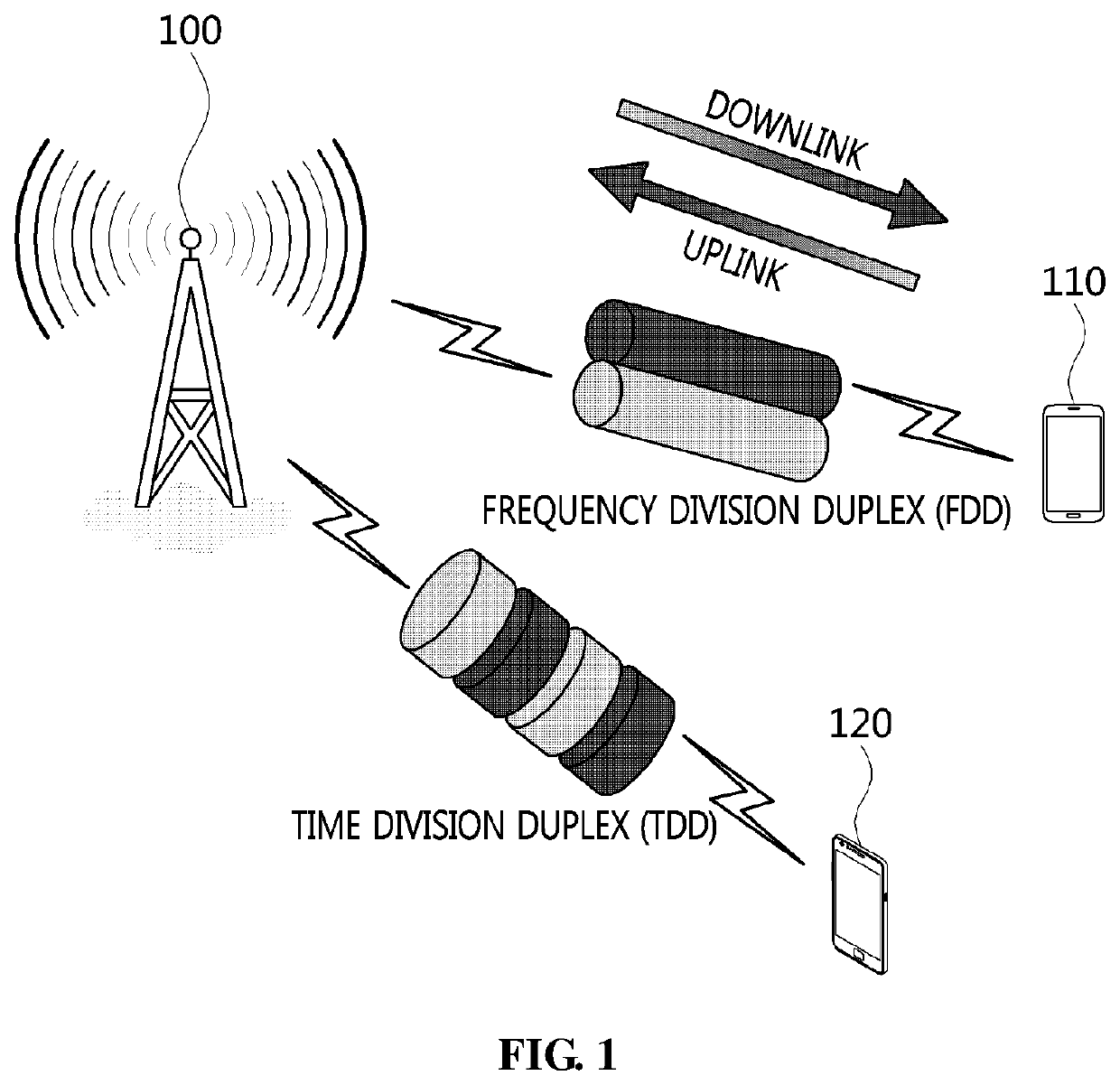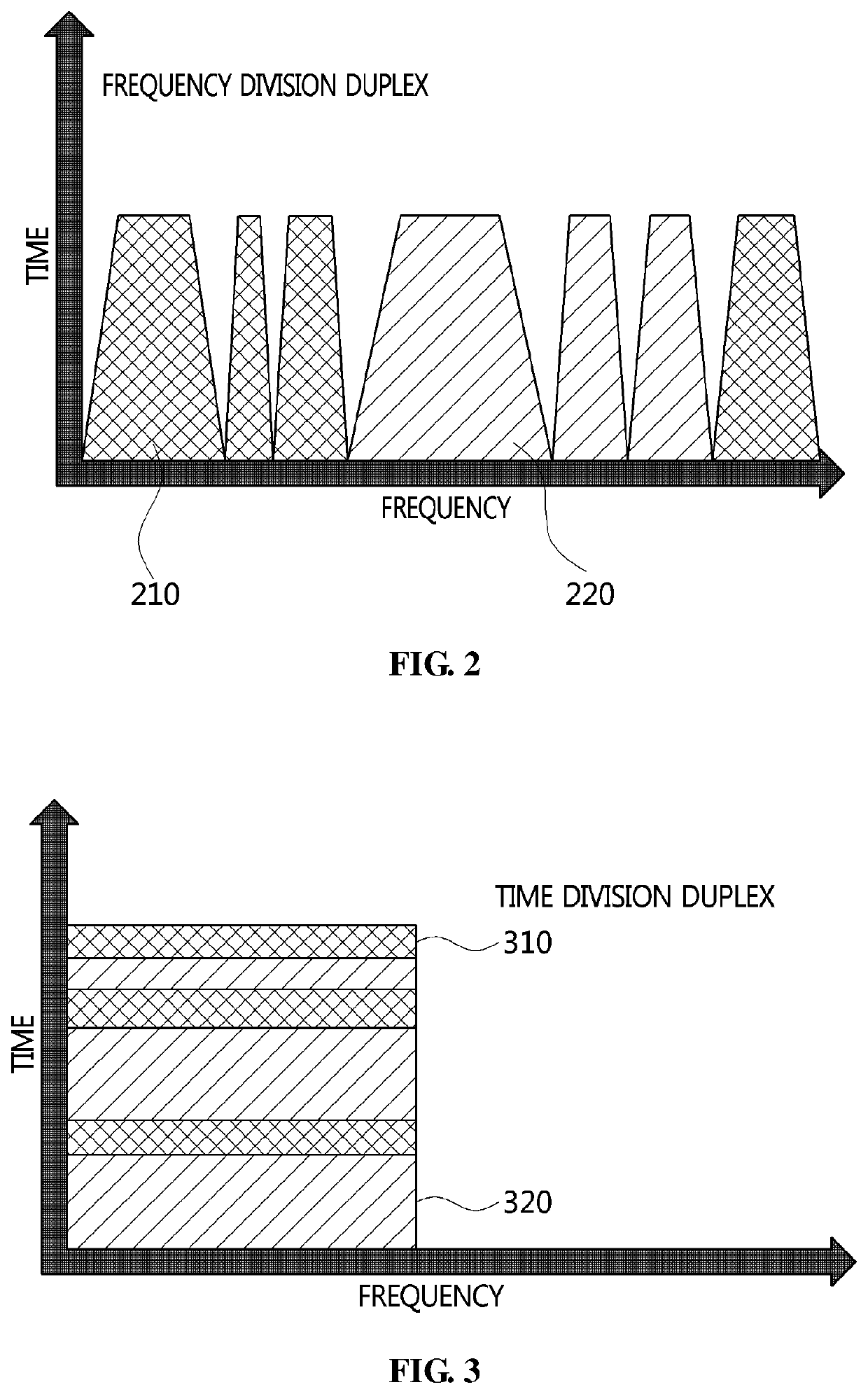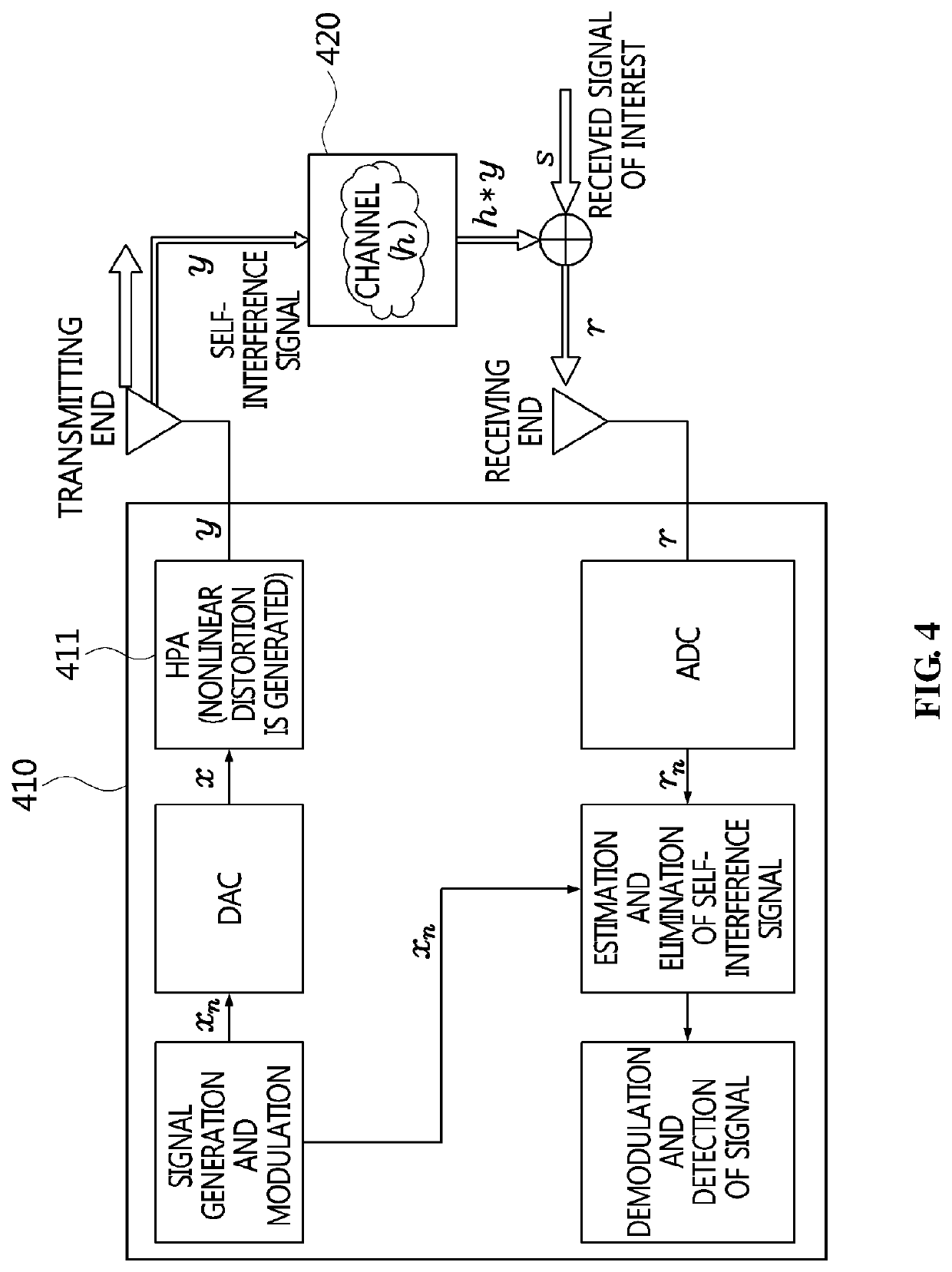Method for estimating self-interference signal based on iterative estimation and apparatus using the same
a self-interference signal and iterative estimation technology, applied in the direction of electrical equipment, transmitter monitoring, transmission monitoring, etc., can solve the problem that the signal received from the transceiver may act as interference, and achieve the effect of effectively estimating and eliminating the self-interference signal
- Summary
- Abstract
- Description
- Claims
- Application Information
AI Technical Summary
Benefits of technology
Problems solved by technology
Method used
Image
Examples
Embodiment Construction
[0031]The present invention will be described in detail below with reference to the accompanying drawings. Repeated descriptions and descriptions of known functions and configurations which have been deemed to unnecessarily obscure the gist of the present invention will be omitted below. The embodiments of the present invention are intended to fully describe the present invention to a person having ordinary knowledge in the art to which the present invention pertains. Accordingly, the shapes, sizes, etc. of components in the drawings may be exaggerated in order to make the description clearer.
[0032]Hereinafter, a preferred embodiment of the present invention will be described in detail with reference to the accompanying drawings.
[0033]FIG. 4 is a view that shows an example of a transceiver system using a full-duplex terminal.
[0034]Referring to FIG. 4, the full-duplex terminal 410, in which transmission and reception are simultaneously performed, may receive a downlink signal transmi...
PUM
 Login to View More
Login to View More Abstract
Description
Claims
Application Information
 Login to View More
Login to View More - R&D
- Intellectual Property
- Life Sciences
- Materials
- Tech Scout
- Unparalleled Data Quality
- Higher Quality Content
- 60% Fewer Hallucinations
Browse by: Latest US Patents, China's latest patents, Technical Efficacy Thesaurus, Application Domain, Technology Topic, Popular Technical Reports.
© 2025 PatSnap. All rights reserved.Legal|Privacy policy|Modern Slavery Act Transparency Statement|Sitemap|About US| Contact US: help@patsnap.com



